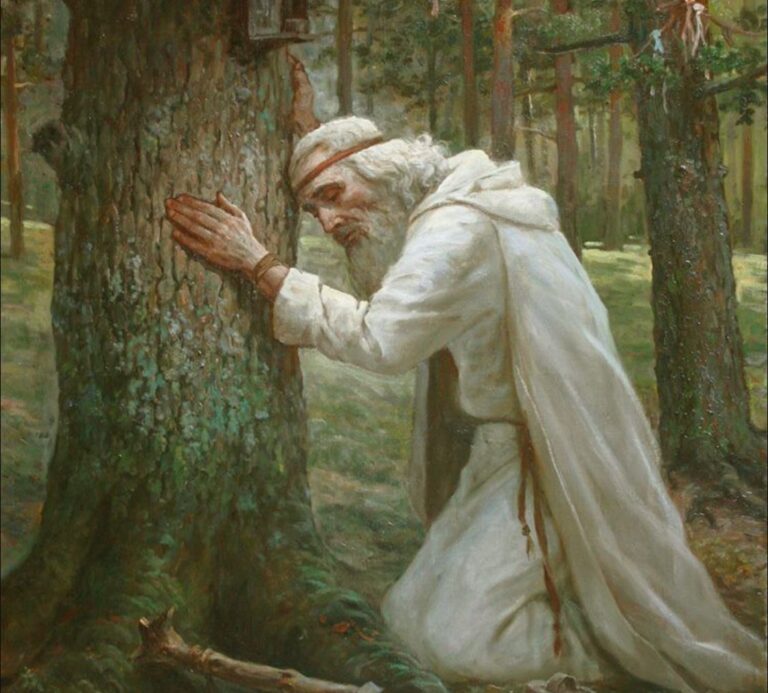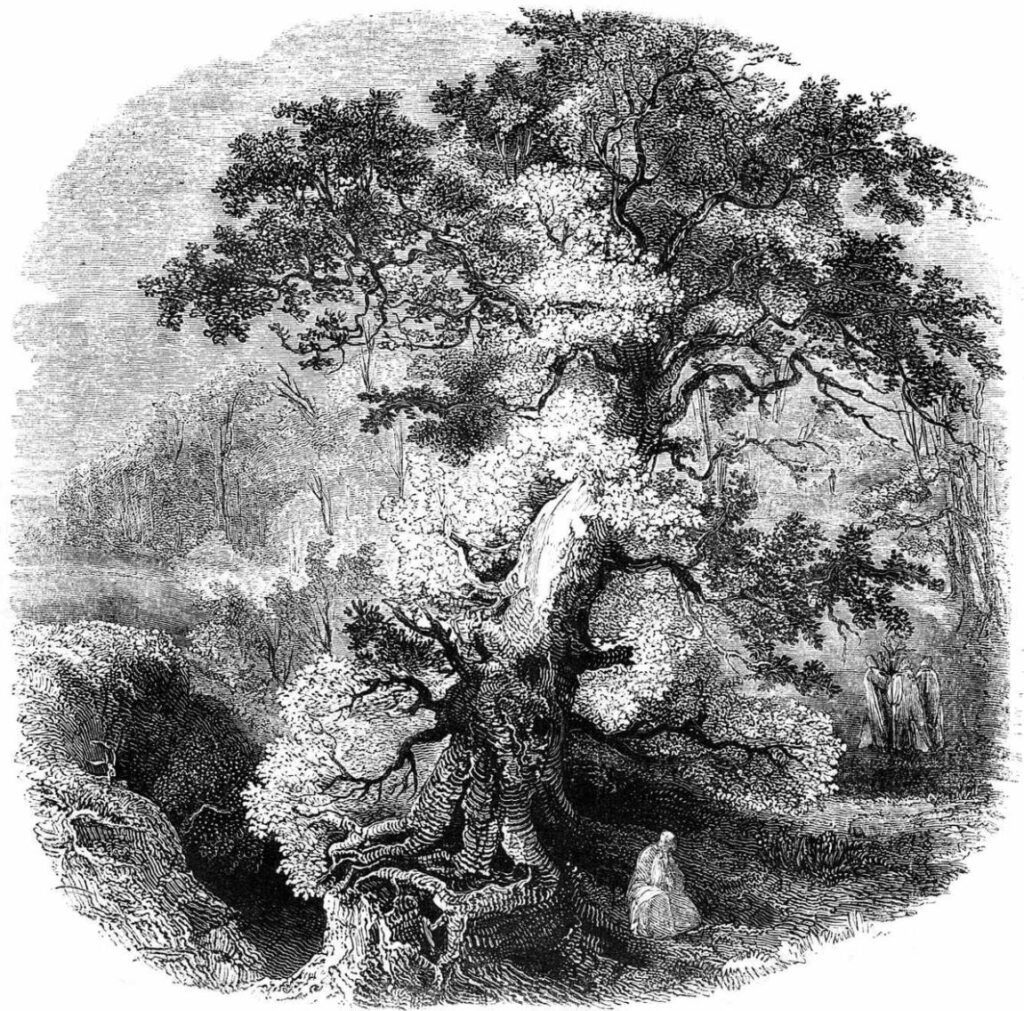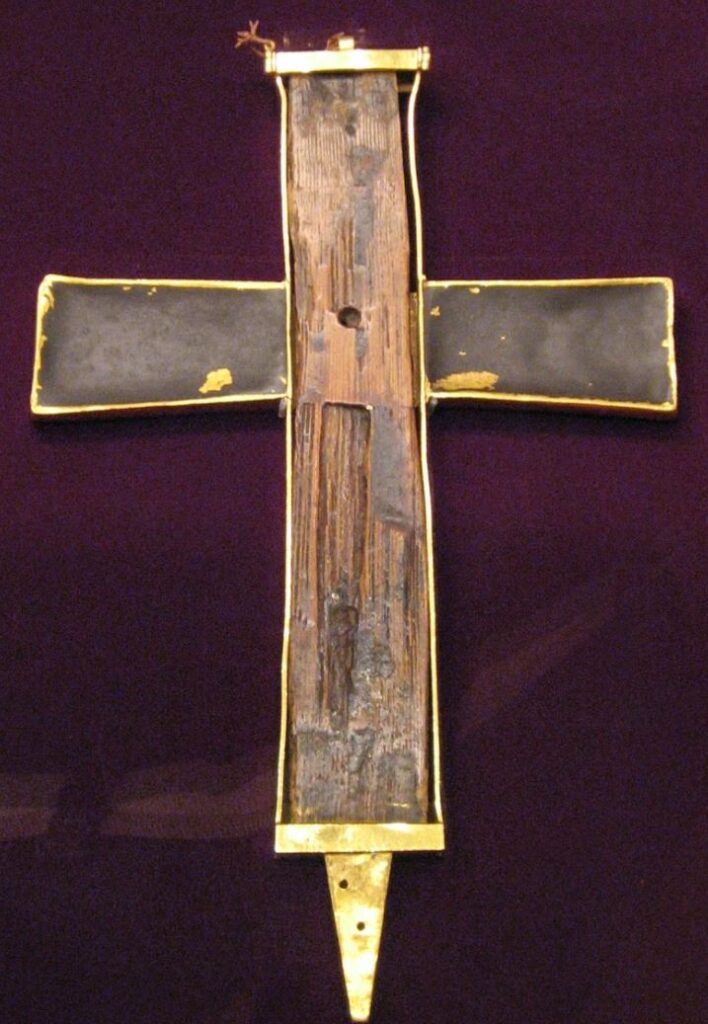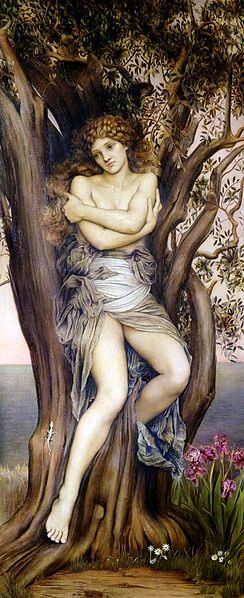
Why do we knock on wood for good luck or to ward off bad luck?
Different Origins, Similar Meanings
There are a couple of theories but most likely all lead to the same origin of this superstitious gesture. Trees were often considered sacred with various superstitious or religious meanings attached to touching them. Some of these beliefs are strikingly similar although they developed independently.
Celtic Pagan Origin

One of the most accredited theories derives from ancient Celtic and Germanic traditions. The Celts believed that the spirit of the gods resided in trees, thus touching the trunk of a tree was a way to contact the gods and get their blessing and protection against evil spirits.
Greek & Egyptians Origin
Similarly to the Celts, the Greek believed trees to be sacred as they were often struck by Lightning. Lightings were believed to be a signs of the gods and especially a sign from Zeus. Thus, if trees were a dwelling place of the gods or repositories of the god’s power, touching them was like communicating with the higher power.

Christian Origin
Although still connected with divinity, wood took a whole new meaning with Christians. Scholars believe that starting with the first century touching wood became connected with the death on the cross of Jesus Christ. Christians turned the pagan act of touching wood as an act of prayer and supplication. “Lord, let my wish come true”. During the middle ages, Cathedrals often claimed to have a piece of the true cross used to crucify Christ. There was enough wood in the Cathedrals around Europe to fill a whole forest thus these pieces of wood were quite common. Touching a piece of the cross or a piece of wood symbolizing the death of Christ was a saving mystical experience.
American Indians Origin
Native Americans believed that boasting of some great future accomplishment or of possible wealth was bad luck. The fool was boastful was as a consequence denied the rosy future. The only way this coud be undone was by “knocking” on the base of an oak tree.
Types of Wood
The type of wood made a difference to many cultures. The Celt, the Greeks, and the Native Americans believed that Oak was a sacred tree. The Egyptians preferred Sycamore, the Germans touched Ash. In Christian time to the more puritan Dutch it was not important what type of wood you touched as long as it was pure, unvarnished, unpainted, and not embellished in any way,

Modern Influence
In the modern kid game of tag, touching a tree is normally a place of safety. An obvious development of the ancient meaning of trees. The more modern source of the American knock on wood (and the British touch wood) can be traced to the 19th Century game “tiggy-touchwood” where kids could get freed by touching a tree.
Touching Vs Knocking
Throughout history it was touching wood that made a difference. The only time that knocking was a tradition was with Native Americans. Interestingly enough, in Britain people still touch wood, while in America most people “Knock on Wood”.
Touching wood has a long history. It was passed down by many cultures. From the Egyptians, to the Greek, to the Romans that passed it to the Britons. The belief evolved into Christian beliefs. Nowadays with not much real wood around us, we are starting to knock on plastic or anything we can reach. All still in the hope of some higher power protecting us or safeguarding us from horrible things.
Reference to learn more:
Why do people knock on wood for luck? – HISTORY
Word & Way
Wikipedia